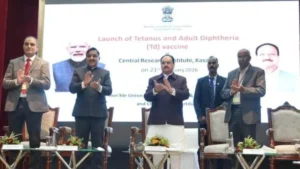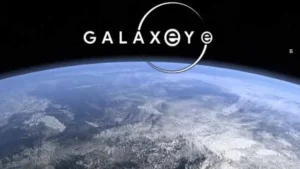South Korea has officially launched its space agency, the Korea AeroSpace Administration (KASA), to lead policy and industrial development in its aerospace sector. The establishment was made possible after the Country’s national assembly passed a special law in January to unify government organizations in charge of space policy and projects. The new agency is based in Sacheon, South Gyeongsang Province, with an annual budget of 758.9 billion won ($556 million).
About National Space Agency (KASA)
- The Korea Aerospace Administration (KASA) will lead the country’s “space economy,” with hundreds of businesses and enterprises working to catapult South Korea into the ranks of the world’s top five space powers, Yoon said.
- “KASA will usher in a new space era by cultivating experts while intensively supporting the aerospace industry ecosystem and fostering challenging and innovative R&D,” Yoon said. The country’s first lunar lander is planned for 2032.
- South Korea became the seventh country to own an indigenous space launch vehicle and satellite development technology with the launch of the Nuri rocket in May last year that put a commercial grade satellite in orbit.
- The agency is aimed at streamlining policy and development functions shared among different government ministries and will bring under its structure the aerospace research institute that developed the Nuri and its precursor space launch vehicles.
- South Korea plans at least three more space launches by 2027 and has plans to launch military satellites.
South Korea and Other Nations
- North Korea launched a rocket but failed to put its second military spy satellite in orbit, which it blamed on a new type of engine failing. But one expert noted the attempt as a “huge leap” in the heavily sanctioned country’s race for space.
- South Korea, Japan and the United States condemned the North’s launch as violating U.N. Security Council resolutions banning it from developing ballistic missile technology.
- China’s space program has developed heavy-lift rockets such as the Long March 5, the Tiangong space station, unmanned moon probes and the rover Zhurong that reached Mars in 2021.
- In January, Japan became the fifth country to place a lander on the moon. Last year, India became the fourth nation to land on the moon, after Russia failed in an attempt the same month.
- Japan also plans a rover mission to Mars.




 Made in India: Nadda Launches Indigenous...
Made in India: Nadda Launches Indigenous...
 Reliance Announces ₹10 Trillion AI Inves...
Reliance Announces ₹10 Trillion AI Inves...
 GalaxEye’s AI-Powered OptoSAR Satellite ...
GalaxEye’s AI-Powered OptoSAR Satellite ...








